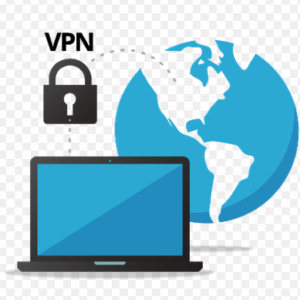Virtual Private Networks (VPNs)
As we make more and more technological advancements, the need to protect our online identity and data en route also increases. A VPN (Virtual Private Network) is the technology which does this for you.You have Firewalls to protect your data on the computer and anti-virus software for protecting you from viruses. But what is the protection that you have once your data leaves your computer? A VPN provides you this protection. Don’t be surprised if in the very near future, just about everyone has it!
The Internet Connection
While the Internet service providers are under legal obligation to protect your privacy, it is quite common, even in the United States, to find that your privacy rights have been blatantly disregarded by Internet service providers, website owners and even search engines. However, with a VPN, businesses can protect their data by sending it over the Internet with VPN encryption.
Why it is important to have your personal VPN
The risk to your data once it leaves your computer is going to rise with every passing day. So, it is important that you have your personal Virtual Private Network (VPN). Here, we briefly look at some of the reasons why you should have your personal VPN in place soon.
Hiding your IP address – It helps you protect your identity and location by hiding your IP address. For this, the VPN service issues you an anonymous “stealth” IP address. As a result of this, your Internet service provider, search engines or the websites you visit are not able to see your real IP address. You can even ‘switch’ your location from one country to another in seconds, if you so desire. You can freely surf the Internet in anonymity.
Protection from the search engines like Google, Yahoo, Bing and AOL from recording your every Internet search – You do not want your searches to be seen out of context or to cause embarrassment to you. When you use a VPN, your actual IP address and location remains protected and secure as only the IP address of the VPN service gets captured by Google, Yahoo, Bing or AOL.
Encrypting your VoIP calls– If you are using a VPN, you can easily secure your VoIP calls by encrypting them from your location.
Using the Free Wi-Fi at Coffee Shops, Airports etc.
Without realizing the implications of using such services, most of us, quite unknowingly, use the Free Wi-Fi facilities available at Coffee Shops, Airports, Hospitals, Railway Stations etc. It would be wise to know that these are rather insecure. Know for sure that by using these services, you can easily fall prey to a hacker. In what is commonly known as “evil twin” attack, a hacker sets up his laptop as ‘what looks like’ a simple Wi-Fi Hotspot by giving it an attractive name like “FREE Airport Wi-Fi” and then, quite innocently, you start sending all your data through this hacker’s laptop. While it may be debated whether such a practice is common or not, you can easily avoid such a situation by using a Virtual Private Network or VPN.

Recent Comments